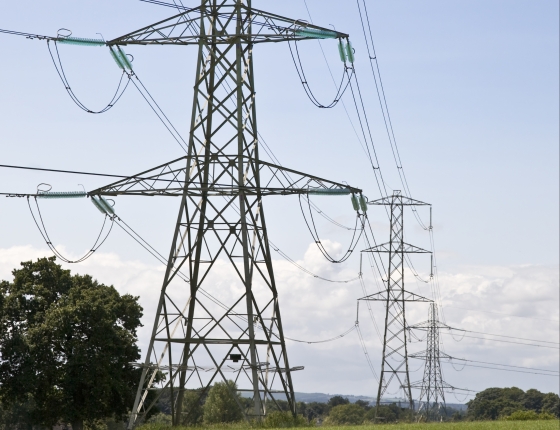Overview
The electric power industry is the largest single user of electric power, higher than any other industry, consuming an estimated 12%–15% of the nation’s electricity production. Losses occur from plant auxiliary loads, transmission and distribution, and substation consumption. These two projects examined opportunities for improving the efficiency of electric utility infrastructure systems in Minnesota.
Electric Utility Infrastructure (EUI) Potential Study: This study examined the potential for EUI efficiency projects (also known as supply-side efficiency), that is, utility-owned projects that improve the electric system's overall generation, transmission, and distribution efficiency. Policy recommendations were made based on results from this study as part of a stakeholder engagement process.
Stakeholder Engagement Project to Clarify EUI Policies: This project consisted of four large stakeholder meetings to engage interested parties about EUI efficiency policy issues, with a goal to clarify the existing policy landscape as it affects EUI projects. The findings from the project were developed in an Action Plan to drive EUI efficiency implementation by leveraging effective policy tools (primarily through the existing Conservation Improvement Program [CIP] framework).
Comprehensive Approach
Project partners worked with stakeholders to quantify the potential for improving efficiency and reducing carbon emissions through EUI improvements in Minnesota. Researchers examined the potential to increase efficiency by decreasing conversion losses, improving plant operations, and mitigating transmission and distribution losses throughout Minnesota’s electric grid.
EUI efficiency studies are an emerging field, so the team had to draw on all stakeholders to ensure useful, accurate results. Because of the project's atypical nature, adjustments to the studies' methodology were expected as research progressed. The team worked to engage stakeholders with an emphasis on coordinating with other ongoing projects.
The potential study was funded by a grant from the Minnesota Department of Commerce, Division of Energy Resources, through the Conservation Applied Research and Development (CARD) program. The stakeholder engagement project was also supported by a State Energy Program Competitive Award through the U.S. Department of Energy. This supply-side study was conducted alongside another CARD-funded potential study to examine energy saving potential on the demand side. Together, these studies help Minnesota consumers and businesses save energy, cut energy bills, and reduce air pollution. They are intended to maximize energy efficiency in homes, commercial buildings, power companies, farms, new construction, and much more.
GDS Associates (GDS) is the lead researcher for these projects.
Objectives
- Measure Minnesota’s potential to improve energy efficiency and reduce carbon emissions through electric utility infrastructure improvements.
- Explore advancing electric utility infrastructure efficiency opportunities in Minnesota through stakeholder engagement for infrastructure savings.
Related Reports and Materials
